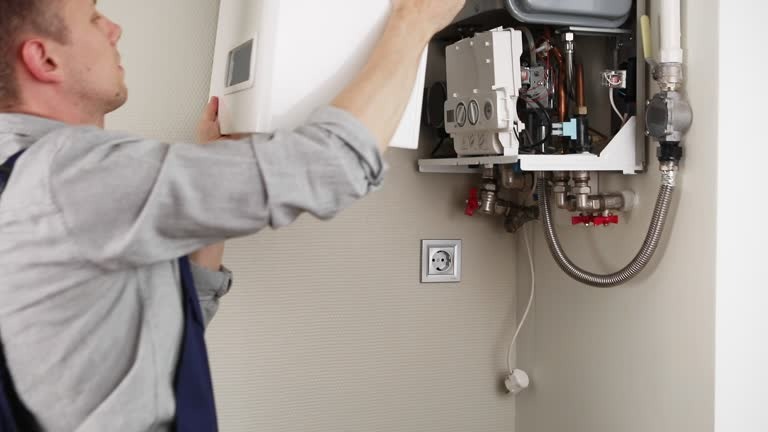
Heat pumps and traditional gas boilers are two popular options for heating homes. Both have their benefits and drawbacks, and the best choice depends on a variety of factors including climate, home size, budget, and personal preference.
Heat pumps operate by transferring heat from one place to another. During the winter months, they extract heat from the outdoor air (even when it’s cold) and move it inside to warm your home. In summer, they work in reverse by pulling heat out of your indoor air and releasing it outside to cool down your house. Heat pumps are highly efficient because they simply move heat rather than generate it.
On the other hand, traditional comparison gas boiler vs heat pump by burning natural gas. The combustion process heats water that is then circulated through radiators or underfloor heating systems throughout the house. Gas boilers are known for their reliability and can provide a high level of comfort with consistent warmth.
When comparing energy efficiency between these two systems, heat pumps generally come out ahead as they can deliver up to three times more energy than they consume. This makes them an environmentally friendly option that can also result in lower utility bills over time.
However, this doesn’t mean that gas boilers are without their merits. They tend to be less expensive upfront compared to heat pumps which require a larger initial investment due to their complex installation process involving both indoor and outdoor components.
Additionally, while heat pumps work efficiently in moderate climates where temperatures rarely drop below freezing point; in colder regions where temperatures often plummet below zero degrees Celsius during winter months – traditional gas boilers may offer superior performance as they don’t rely on extracting warmth from the outside air.
In terms of maintenance requirements – both systems need regular check-ups but typically speaking; gas boilers might need more frequent servicing due to potential safety risks associated with combustion gases if not properly vented or maintained.
Ultimately deciding between a traditional boiler system or a modernized approach using a heat pump will depend heavily upon individual circumstances. It’s important to consider factors such as local climate, home insulation, budgetary constraints and long-term sustainability goals.
To make an informed decision, homeowners should seek advice from a professional heating engineer who can assess their specific needs and recommend the most suitable system. By understanding the advantages and disadvantages of each option, homeowners can choose a heating solution that provides comfort, efficiency, and peace of mind for years to come.
